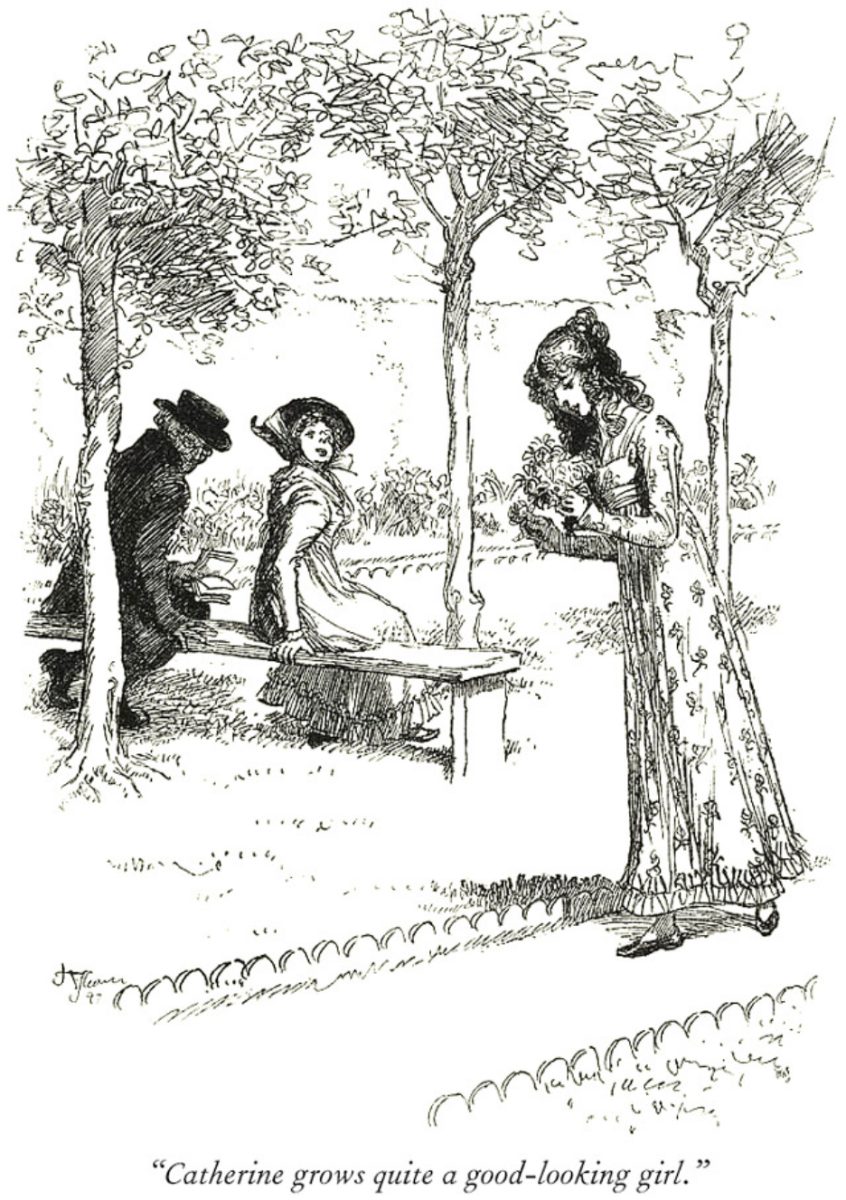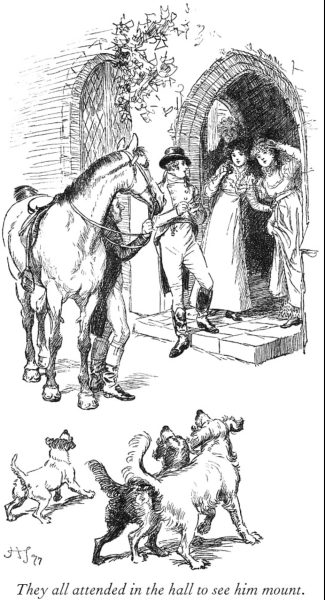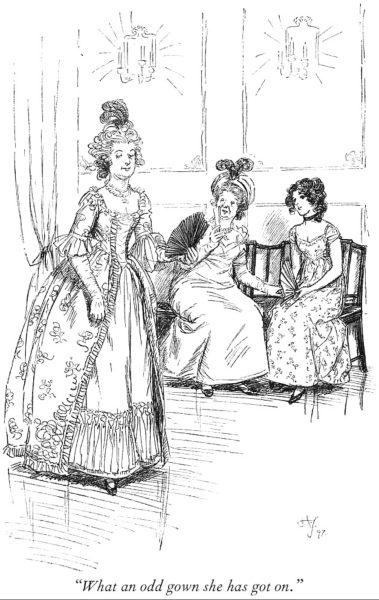Imagine a reader hundreds of years ago, cradling a novel as they sit under a tree, taking in the fresh air and warm sunlight. Now imagine a similar reader in the 21st century, reading their Kindle by the window as they listen to the rain, drinking a cup of coffee. What you may be surprised to learn is that these readers, although belonging to different time periods and environments, are reading the same book. Classic books are works of literature that have made lasting impacts over generations, from the Brontë sisters to Dickens to Tolstoy, their books have stayed with readers across varying time periods alike. Perhaps one of the most well known (and a personal favorite) is Jane Austen.
Jane Austen is one of the world’s most celebrated authors. You may know her from some of her most famous novels (Pride and Prejudice, Emma, Sense and Sensibility, etc.), her copious amount of film adaptations (The 2005 Pride and Prejudice is my favorite,) or from being the face of the ten-pound note in British currency. Regardless, she is well-loved for her heartwarming romance novels, which often take on themes of society, class, womanhood, and marriage, along with various others. These novels are still adored even today. When contemporary readers experience them, not only can they enjoy the characters and their timeless romances, but they’re able to dive into 18th-19th century England.
I’ve read my fair share of Austen, and in doing so have learned a great deal, which I would like to share with you.
One of the most explored themes of Austen’s novels is marriage. After all, dating scarcely existed during these times, or at least not in the way we know it today. If men were interested in a woman, they’d court her, which was an organized and meticulous affair, often monitored by family and community. (Imagine your entire dating life being monitored by your parents. Scary.) Courting consisted of a man being introduced to a woman, and then spending time and interacting with her, through often planned encounters. This never included physical touch. There was a much larger attention to detail that went into couples during this time, something we no longer see today. This is evident in all of Austen’s novels, which feature walks with friends, house visits, and grand ballroom dances, all overseen by some acquaintance or other.
A considerable difference between marriage now and then was that in the past, marriage was largely a financial proposition. While it’s true that some people now marry for money, and certainly people long ago would marry for love, often money played a key role in past marriages, in a way that doesn’t happen today. (I’d like to note that I’m focusing on the U.S. when I make these comparisons.)
Because women were generally not allowed to work (unless they were very, very poor; working for women was frowned upon and they were treated far worse than men,) they’d have to rely on marriage to determine where they stood both socially and financially in the world. Marriage was seen as a woman’s goal in life, it was what their entire life led up to, meaning all their efforts typically went into finding a good husband. (Not marrying was also an option, though less encouraged. Jane Austen never married!)
Let’s take Pride and Prejudice as an example. In the novel, Elizabeth Bennet, our witty and lovely protagonist, first received a marriage proposal from Mr. Collins, a boring and chatty young man with a decent fortune. Mr. Collins intended to marry one of the Bennet girls because he was set to inherit their father’s estate (because he’s their cousin, which makes the situation even worse.) Lizzy turned him down, seeing as she felt no interest or affection towards the pompous young man (who was, allow me to reiterate, her cousin.)
However, this was a bit problematic during this period, because Lizzy’s family was extremely poor. Mr. Collins, while no billionaire, had a respectable income and could take care of Lizzy. Because Lizzy was so poor, she was unlikely to receive another offer from a man of Collins’s status, seeing as it would provide no connections. Of course, Lizzy ends up falling in love with the wealthy Mr. Darcy, and while this story is one of my favorites, it can be a bit unrealistic. It would have been entirely probable for no other (profitable) offer to come her way, thus leaving her to a life of poverty.
Womanhood (and the Double Standard)
This unfortunate and altogether unfair situation for women brings me to my next point: being a woman during this time period sucked. Which is pretty obvious, but I think we sometimes forget how unfair it was.
There was a massive double standard when it came to men and women. They were seen as unequal; the man was in control, he could work and own property, while women were left with essentially the option to say yes or no (to a marriage proposal, that is.) If your father owned a house and you were his only daughter, you would not inherit that property when he died. If your husband had passed away and you had no sons, neither you nor your daughters would inherit the property. Instead, it would be given to the next man in line, whether that be a cousin you were close with or a nephew whom you’d never spoken to. (This is described in Pride and Prejudice: Mr. Collins is set to inherit the property because he’s the next male in line, despite Mr. Bennet’s wife and numerous daughters, all in fine health.)
Women, as we know, could not vote, were discouraged from publishing writing, discouraged from working, and were unable to shop without a male escort. They couldn’t even wear pants! (And they call my generation sensitive.) This all had to do with the social standards, which are much stricter than we see now, that were put in place. While it’s fun to imagine living in the romantic setting of Austen’s novels, it’s also important to remember the debilitating standards that strongly limited women during these times.
Another thing that was dependent on gender was reputation. What I mean is that men could get away with plenty that women couldn’t. Let me give an example. In Pride and Prejudice, Lizzy’s senseless and immature sister Lydia runs off with Mr. Wickham (don’t even get me started,) on the belief that he is going to marry her, which he has no intention of doing. Mr. Darcy generously steps in and pays Wickham a hefty sum on the condition that he marry Lydia. If this marriage hadn’t taken place, her reputation would have been irrevocably tarnished, her status never repaired.
Another example is in Austen’s satirical novel Northanger Abbey. Isabella Thorpe, our protagonist’s not-so-faithful friend, is engaged to Catherine’s (the protagonist’s) brother, James Morland. This engagement seems beneficial for all parties involved, until Catherine finds out that James is not as rich as she once believed. James’s father offers a generous amount of money for the marriage, but it is not enough for Isabella’s greedy heart, leading her to become flirtatious with her new acquaintance, Frederick Tilney. (Isabella is basically a 18th-century gold digger.) Frederick is from a very rich and respected family, making him all the more desirable for Isabella. However, it’s revealed that Frederick was flirting with her purely for enjoyment and out of no real interest, leaving no marriage for Isabella to fall back on.
This did terrible things to her reputation, and it most likely never recovered, however Frederick was left unharmed. He was allowed to flirt and frolic with whomever he liked, of no consequence. If a woman were to do this, contrarily, she would be subject to the gossip of many, known as a scandalous woman and a terrible influence. Her social status would be ruined, all on the basis of something entirely acceptable for a man. (Despite changes made to our society, there is still a significant double standard when it comes to men and women, and what men can get away with that women can’t. Situations like this can still be seen today, even if on a lesser scale.)
Modesty and Social Standards
Of course, people were shades more modest and mannerly compared to now. I mean that in the context of everything: clothing, novels, news, social standards, relationships. The standard for what could and could not be done, what was considered acceptable behavior and what wasn’t, was of course different. Walking alone with a man, as a woman, in the wrong circumstances could prove disastrous to one’s image during that period. Clothes were obviously different, being altogether more fancy and (in my opinion) stiff. If you wanted to visit someone’s house, it was necessary to call on them, meaning you’d deliver a card expressing your wishes to visit. The breaching of manners in the wrong way could deeply offend someone. This all reflects the general propriety of 18th-19th century England, which we can learn about when we submerge ourselves into the world of Jane Austen, allowing us to see how it greatly contradicts ours. These many rules and customs have no place in the world we see today, and are almost funny to look back on.
Imagine being a woman in the 18th century, waking up to a beautiful invitation in the mail, with gilded edges and dashing curling font. You squeal in giddy excitement and pick out your nicest gown, your gloves and your shoes, and the perfect jewelry for the occasion. On the day of, you walk to the ball if it’s close enough, or you take a carriage if you can manage it. You arrive in a gorgeous ballroom, full of glamorous youth laughing and an organized dance in the middle of the room. It looks like fun, and you wish to join, but you don’t know anybody!
Lucky for you, you’re introduced to a young man by a mutual acquaintance, and you dance all night long until your feet hurt. Thank God for the introduction, for if it hadn’t taken place, you would’ve been left to fend for yourself, watching bitterly from the sidelines.
If we compare the luxurious balls of long ago to current-day parties, they’re vastly different. The general nature of them has obviously changed, balls were much more formal and sophisticated than our typical get-togethers (but then again, I think most things are more casual now than they were hundreds of years ago.) Balls are also a good example of the difference in the prudence and modesty of our social customs compared to back then. Compare that with your typical college party, a regular place for strangers to hook up. Austen references balls a lot in her novels, as they were a popular social setting and a major source of entertainment. They were organized and dignified affairs and can tell us a lot about the culture and society of the 18th and 19th centuries. Dignified affairs to this extent don’t commonly take place, they’re a thing of fantasy novels and period dramas. But at one point they were a regular Saturday night.
Novels and their Reputation
Another thing I’d like to bring up, which is very inconsistent with today, is how novels were perceived. In Northanger Abbey, Jane Austen describes the negative connotations associated with novels at the time, as well as the hypocrisy of their being criticized in novels themselves. When describing her own characters reading novels (Catherine, the protagonist, was a bit of a bookworm, however she was well aware that they were looked down on,) Austen writes, “Yes, novels; for I will not adopt that ungenerous and impolitic custom so common with novel-writers, of degrading by their contemptuous censure the very performances, to the number of which they are themselves adding” She disliked the standard of novels being seen as less worthy than purely factual, studious texts. Nowadays adults are struggling to get their youth to read anything at all. However back then, if you were reading a story, god forbid, then you must not be smart enough, refined enough, to read anything of intellectual value.
I also think the content in books was different, things that appear regularly in novels nowadays would have been extremely controversial, and in many cases wouldn’t have even been published. (I’m totally thinking of Booktok when I say this.) It’s no surprise that we’re certainly more progressive, and I wonder what they would’ve thought of our media.
The Importance Today
One question which may come up reading Jane Austen, or any classic novel, is ‘why is this important? How does any of this affect me, someone living in the 21st century?’
In the grand scheme of things, it technically doesn’t. You could go your entire life without reading Austen, and you’d be perfectly fine. But I still think that there’s a certain value that comes with reading these books. Not only can older novels provide us with a deep understanding of our own life, after all, even if something was written ages ago, it can still greatly apply to our own selves and the way we live. But it can also give us a wider scope of history, and not just facts and dates, but a glimpse into the way society actually functioned. It can teach culture, customs, can allow you to compare past life to modern life, and can change your perspective on the way you live.
So although you don’t need it, I believe that reading any classic novel can be beneficial, like learning anything. They’ve taught me a lot, and so I hope that you’re encouraged to pick up any book, classic or not, and to really take something away from it. Learn something, whether that be a fact about history, a new way of thinking, a different outlook on life, anything that makes you question or apply yourself differently. Because I believe that’s the greatest benefit of literature, something that’s unique in the way it’s interpreted, and in turn understood and benefited from, for each individual.




